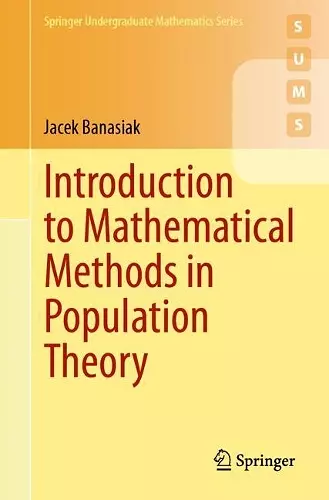Introduction to Mathematical Methods in Population Theory
Format:Paperback
Publisher:Springer International Publishing AG
Published:21st Dec '24
Should be back in stock very soon

This textbook provides an introduction to the mathematical methods used to analyse deterministic models in life sciences, including population dynamics, epidemiology and ecology. The book covers both discrete and continuous models.
The presentation emphasises the solvability of the equations appearing in the mathematical modelling of natural phenomena and, in the absence of solutions, the analysis of their relevant properties. Of particular interest are methods that allow for determining the long-term behaviour of solutions. Thus, the book covers a range of techniques, from the classical Lyapunov theorems and positivity methods based on the Perron–Frobenius theorem, to the more modern monotone dynamical system approach. The book offers a comprehensive presentation of the Lyapunov theory, including the inverse Lyapunov theorems with applications to perturbed equations and Vidyasagar theorem. Furthermore, it provides a coherent presentation of the foundations of the theory of monotone dynamical systems with its applications to epidemiological models. Another feature of the book is the derivation of the McKendrick–von Foerster equation from the discrete Leslie model and the analysis of the long-term behaviour of its solutions.
Designed for upper undergraduate courses and beyond, this textbook is written for students and researchers looking to master the mathematics of the tools commonly used to analyse life science models. It therefore goes somewhat deeper into mathematics than typical books at this level but should be accessible to anyone with a good command of calculus with elements of real and complex analysis and linear algebra; the necessary concepts are collected in the appendices.
ISBN: 9783031654909
Dimensions: unknown
Weight: unknown
615 pages
2024 ed.